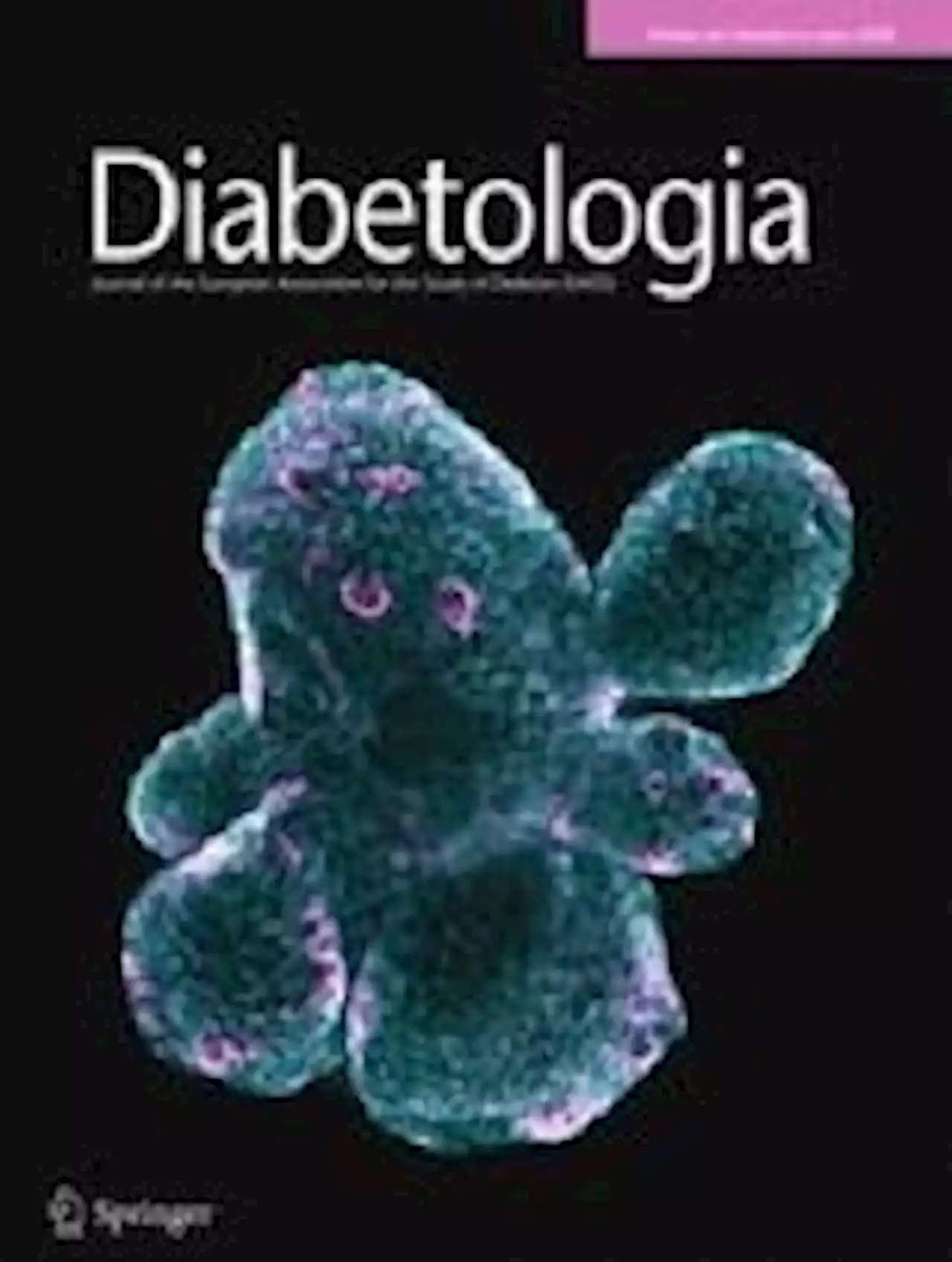🏠 The epic house price inflation that made buying up homes look like a good investment is gone, and perhaps for good 🔎 Analysis by Victoria_Spratt
, as wages would need to catch up with house prices for the elastic relationship between the two to keep functioning.
So, when it comes to longer mortgage terms, rising interest rates, and falling house prices – caveat emptor indeed. At best, future generations of homeowners who buy without huge cash deposits will repay expensive mortgages into old age. At worst, they could end up repaying expensive loans taken out on homes that end up being worth less than they paid for them. Or, perhaps, we’ll end up like Japan where 70 and 100-year mortgages are passed down through generations of the same family.
Ireland Latest News, Ireland Headlines
Similar News:You can also read news stories similar to this one that we have collected from other news sources.
 Experiences of dysmenorrhea and its treatment among allistic and autistic menstruators: a thematic analysis - BMC Women's HealthBackground Dysmenorrhea (i.e., period pain) is common and debilitating. Autistic people are known to experience pain differently, yet little is known about the menstrual pain experiences of autistic menstruators relative to non-autistic peers. This study aimed to explore the experience of period pain and treatment uptake for period pain among allistic and autistic populations. Methods This study used a qualitative design and opportunity sampling approach. Thirty-seven participants (of whom 17 were autistic) were interviewed via video-conferencing software using a semi-structured topic guide. Transcriptions of interviews were analysed using Braun and Clarke’s Reflexive Thematic Analysis. Data were initially analysed together for common themes. Autistic menstruators’ data was subsequently analysed separately to elucidate the unique experiences of this group. Results A total of six themes were constructed from the data. Initial analysis determined three themes related to experiences of period pain and treatment uptake in both allistic and autistic menstruators. Social perception of menstruation was discussed, highlighting the normalisation of pain, the taboo nature, and gendered experience of menstruation, contributing to untreated menstrual pain. Issues within menstrual healthcare were also shared, including experiences of ineffective treatment, dismissive interactions, and insufficient menstrual education. Impaired functionality was repeatedly highlighted, with menstruators detailing significant limitations to their usual functioning due to menstrual pain and ineffective treatment. Three further themes were constructed from separate analysis of data from autistic menstruators. Autistic menstruators discussed the impact of menstruation on their sensory experiences and needs, with many identifying overstimulation during menstruation. Social exclusion was discussed as a factor contributing to the experience of menstrual pain and poor treatment uptake. The final theme id
Experiences of dysmenorrhea and its treatment among allistic and autistic menstruators: a thematic analysis - BMC Women's HealthBackground Dysmenorrhea (i.e., period pain) is common and debilitating. Autistic people are known to experience pain differently, yet little is known about the menstrual pain experiences of autistic menstruators relative to non-autistic peers. This study aimed to explore the experience of period pain and treatment uptake for period pain among allistic and autistic populations. Methods This study used a qualitative design and opportunity sampling approach. Thirty-seven participants (of whom 17 were autistic) were interviewed via video-conferencing software using a semi-structured topic guide. Transcriptions of interviews were analysed using Braun and Clarke’s Reflexive Thematic Analysis. Data were initially analysed together for common themes. Autistic menstruators’ data was subsequently analysed separately to elucidate the unique experiences of this group. Results A total of six themes were constructed from the data. Initial analysis determined three themes related to experiences of period pain and treatment uptake in both allistic and autistic menstruators. Social perception of menstruation was discussed, highlighting the normalisation of pain, the taboo nature, and gendered experience of menstruation, contributing to untreated menstrual pain. Issues within menstrual healthcare were also shared, including experiences of ineffective treatment, dismissive interactions, and insufficient menstrual education. Impaired functionality was repeatedly highlighted, with menstruators detailing significant limitations to their usual functioning due to menstrual pain and ineffective treatment. Three further themes were constructed from separate analysis of data from autistic menstruators. Autistic menstruators discussed the impact of menstruation on their sensory experiences and needs, with many identifying overstimulation during menstruation. Social exclusion was discussed as a factor contributing to the experience of menstrual pain and poor treatment uptake. The final theme id
Read more »
 Genome-wide association analysis identifies ancestry-specific genetic variation associated with acute response to metformin and glipizide in SUGAR-MGH - DiabetologiaAims/hypothesis Characterisation of genetic variation that influences the response to glucose-lowering medications is instrumental to precision medicine for treatment of type 2 diabetes. The Study to Understand the Genetics of the Acute Response to Metformin and Glipizide in Humans (SUGAR-MGH) examined the acute response to metformin and glipizide in order to identify new pharmacogenetic associations for the response to common glucose-lowering medications in individuals at risk of type 2 diabetes. Methods One thousand participants at risk for type 2 diabetes from diverse ancestries underwent sequential glipizide and metformin challenges. A genome-wide association study was performed using the Illumina Multi-Ethnic Genotyping Array. Imputation was performed with the TOPMed reference panel. Multiple linear regression using an additive model tested for association between genetic variants and primary endpoints of drug response. In a more focused analysis, we evaluated the influence of 804 unique type 2 diabetes- and glycaemic trait-associated variants on SUGAR-MGH outcomes and performed colocalisation analyses to identify shared genetic signals. Results Five genome-wide significant variants were associated with metformin or glipizide response. The strongest association was between an African ancestry-specific variant (minor allele frequency [MAFAfr]=0.0283) at rs149403252 and lower fasting glucose at Visit 2 following metformin (p=1.9×10−9); carriers were found to have a 0.94 mmol/l larger decrease in fasting glucose. rs111770298, another African ancestry-specific variant (MAFAfr=0.0536), was associated with a reduced response to metformin (p=2.4×10−8), where carriers had a 0.29 mmol/l increase in fasting glucose compared with non-carriers, who experienced a 0.15 mmol/l decrease. This finding was validated in the Diabetes Prevention Program, where rs111770298 was associated with a worse glycaemic response to metformin: heterozygous carriers had an increase in HbA1c of
Genome-wide association analysis identifies ancestry-specific genetic variation associated with acute response to metformin and glipizide in SUGAR-MGH - DiabetologiaAims/hypothesis Characterisation of genetic variation that influences the response to glucose-lowering medications is instrumental to precision medicine for treatment of type 2 diabetes. The Study to Understand the Genetics of the Acute Response to Metformin and Glipizide in Humans (SUGAR-MGH) examined the acute response to metformin and glipizide in order to identify new pharmacogenetic associations for the response to common glucose-lowering medications in individuals at risk of type 2 diabetes. Methods One thousand participants at risk for type 2 diabetes from diverse ancestries underwent sequential glipizide and metformin challenges. A genome-wide association study was performed using the Illumina Multi-Ethnic Genotyping Array. Imputation was performed with the TOPMed reference panel. Multiple linear regression using an additive model tested for association between genetic variants and primary endpoints of drug response. In a more focused analysis, we evaluated the influence of 804 unique type 2 diabetes- and glycaemic trait-associated variants on SUGAR-MGH outcomes and performed colocalisation analyses to identify shared genetic signals. Results Five genome-wide significant variants were associated with metformin or glipizide response. The strongest association was between an African ancestry-specific variant (minor allele frequency [MAFAfr]=0.0283) at rs149403252 and lower fasting glucose at Visit 2 following metformin (p=1.9×10−9); carriers were found to have a 0.94 mmol/l larger decrease in fasting glucose. rs111770298, another African ancestry-specific variant (MAFAfr=0.0536), was associated with a reduced response to metformin (p=2.4×10−8), where carriers had a 0.29 mmol/l increase in fasting glucose compared with non-carriers, who experienced a 0.15 mmol/l decrease. This finding was validated in the Diabetes Prevention Program, where rs111770298 was associated with a worse glycaemic response to metformin: heterozygous carriers had an increase in HbA1c of
Read more »
 Improving prostate cancer screening: accounting for genetic determinants of PSA variationImproving prostate cancer screening: accounting for genetic determinants of PSA variation NatureMedicine UofCalifornia prostate prostatecancer genetics geneticdeterminants PSA
Improving prostate cancer screening: accounting for genetic determinants of PSA variationImproving prostate cancer screening: accounting for genetic determinants of PSA variation NatureMedicine UofCalifornia prostate prostatecancer genetics geneticdeterminants PSA
Read more »
 Police fail to solve burglary in half of neighbourhoods in last three years, as offence effectively 'decriminalised'Police have not solved a single burglary in half of England and Wales in the last three years, sparking fears the offence has effectively been 'decriminalised'
Police fail to solve burglary in half of neighbourhoods in last three years, as offence effectively 'decriminalised'Police have not solved a single burglary in half of England and Wales in the last three years, sparking fears the offence has effectively been 'decriminalised'
Read more »
Three Israeli soldiers shot dead on Egyptian border\n\t\t\tKeep abreast of significant corporate, financial and political developments around the world.\n\t\t\tStay informed and spot emerging risks and opportunities with independent global reporting, expert\n\t\t\tcommentary and analysis you can trust.\n\t\t
Read more »
Nations split on how to cut plastic pollution after week of UN talks\n\t\t\tKeep abreast of significant corporate, financial and political developments around the world.\n\t\t\tStay informed and spot emerging risks and opportunities with independent global reporting, expert\n\t\t\tcommentary and analysis you can trust.\n\t\t
Read more »
